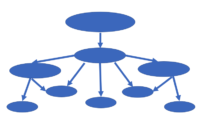
Personalizing and Extending Deliberation in the Online Classroom: Future Horizons
Research indicates that when instructors interact with students online their academic engagement increases, yet there is little research on student peer interactions and its effectiveness in terms of academic engagement. This study evaluates peer deliberations on a collaborative website for students enrolled in an American politics course at two institutions. Significant evidence reveals that student […]














